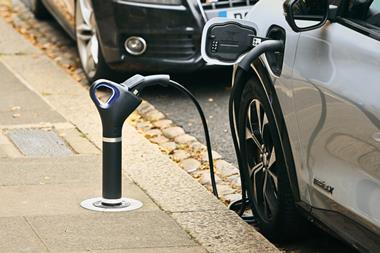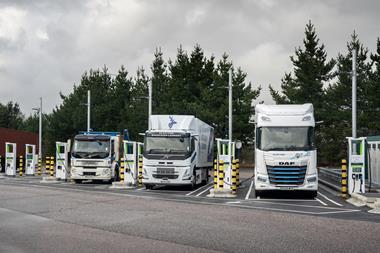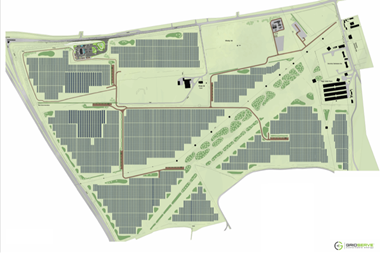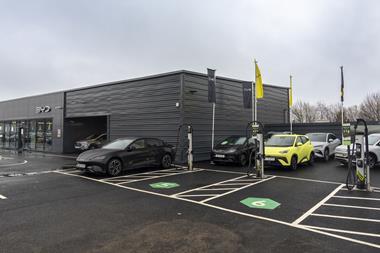Our ‘legal doctor’ Robert Botkai discusses having EV charging kit on your forecourt and specifically, leases and licences

An article please Robert. You have 7 days. Don’t let me down. Love Merril.
Can I tell readers about my recent holiday? No Robert. The law – write about the law. Merril.
Introduction
I have just returned from the French Alpes – bear with me Merril – and had my first experience of driving an electric car. A Polestar from Hertz at Geneva Airport.
The week I had in hiking in the mountains and more importantly driving (lovely car by the way) and charging an electric vehicle (EV) inspired me to write about what retailers should consider when installing EV apparatus on their forecourts.
EVs may be the future. Many think that long term hydrogen is the answer. I can’t advise on this – in common with most lawyers I was never much good at physics and chemistry. But clients are asking about EV charging and there is a lot to consider.
Most apparatus suppliers (I will call them operators) will ask for a lease or a licence. They will then install apparatus and you agree in the legal document who pays for what and how to divide the income. The documents can be complex and I will not go into all the technical aspects here. But I would like to remind readers of the important distinction between a lease and a licence.
What is a lease?
A lease is the grant of a right to the exclusive possession of land for a stated period of time.
A lease is both a contractual relationship and an estate in land. It is capable of being transferred – usually with the consent of the Landlord.
One of the key elements of a lease is exclusive possession. A person has exclusive possession if it can exercise the rights of the landowner and exclude both the landlord and third parties from the land.
The label of a document as a lease is not determinative. A lease may still come into existence, notwithstanding the express terms of the contract, if exclusive possession is granted.
What is a licence?
A licence is simply permission for a licensee to do something on a licensor’s property.
A licence is by definition not a lease: it is a personal right or permission that offers no security.
A licence entitling the licensee to use the land for the purpose authorised by the licence does not create an estate in land.
Why is the distinction important?
A tenant pursuant a lease will usually enjoy what is known as security of tenure.
Under the Landlord and Tenant Act 1954 (there we go Merril) a tenant occupying for the purpose of a business will generally have a statutory right to renew its tenancy at the end of the term. There are exceptions but space does not allow me to set them out here.
The security of tenure can be excluded by a rather cumbersome process of notice and declaration. It is easy to get these wrong which could lead, inadvertently, to an occupier gaining security.
Advantages of a lease
On expiry of a properly excluded (see above) short-term lease, the landlord is entitled to possession. The landlord is protected from spurious claims from the tenant that it can remain at the premises following lease expiry. These can be expensive and can delay alternative plans you may have for your property.
The lease offers security and certainty for the tenant. The landlord usually has limited rights of access as the tenant must enjoy exclusive possession.
The tenant will usually be able to transfer its interest to another party, subject to landlord consent.
Disadvantages of a lease
The document tends to be longer than a licence although the EV licences we are now seeing issued by Operators are meaty.
Stamp duty land tax may be payable on the lease.
There could be a risk that a Court would find that an Operator is not enjoying exclusive possession and so cannot be occupying under a lease. This means that any such lease would be a licence and the Operator may inadvertently have been given security of tenure.
The tenant may be able to transfer its interest to another party!
The advantages of a licence
These are generally shorter (but see above) and so can be completed quicker and at less expense than a lease.
No security of tenure is enjoyed by the licensee – this is an advantage to the landlord.
The circumstances in which a party may determine a licence depend on the terms of the licence.
Disadvantage of a licence
Despite the document being labelled a licence, if exclusive possession is granted, there is a risk for a landowner that the arrangement may later be challenged by the occupier.
The occupier generally has less control over the land it occupies.
A licensee’s occupation is precarious. If the landowner sells the land (even to a group company), the licence will end, although the licensee may have a right of action against the original licensor for breach of contract.
So, lease or licence?
It depends. Landowner and Operator may well have a very different view.
The landowner is unlikely to want to tie up part of its forecourt for apparatus that may not pay its way, may become out of date or may even impact on the other uses of the forecourt.
Where will we be on EV charging in 10-15 years’ time?
The Operator may be investing a significant capital sum. It will provide the apparatus but may also be paying for or contributing to the cabling required to connect to the grid.
In all cases the Landowner is likely to need the consent of its lender to a lease or licence and if it itself is occupying under a lease then from its landlord too. Lenders and superior landlords will be concerned by the risk of occupiers enjoying security.
Conclusion
I am afraid there isn’t one other than a strong warning that retailers take legal advice before signing up to any occupational interest. Do contact the team at Winckworth Sherwood if you wish to discuss.
Holiday tips (this will never get past Merril but here goes)
- · If the use of the apparatus relies on an App or access to a web site, make sure that there is network coverage. We had to keep running from basement to ground floor to register and then pay.
- · It helps the EV driver to know if the apparatus is functioning and if so, how long a charge may take. The Polestar took 6 hours to charge at the forecourt store close to our holiday accommodation.
- · If the customer’s cable is somehow locked into the apparatus cabinet, do make sure that it doesn’t take an hour and half of calls, emails, App registrations and more to get it released.
- · Give clear indications of cost. We paid £30 to charge in one car park and an additional £40 for the privilege of parking!
As an aside and I doubt the people at Hertz are reading this article, but the requirement for the customer to return the car at 70% charge significantly increases range anxiety. Please absorb the charging cost in the rental price!
I would very much welcome feedback and suggestions on these issues or any areas you would like me to cover in future articles.
rbotkai@wslaw.co.uk
www.wslaw.co.uk
































No comments yet